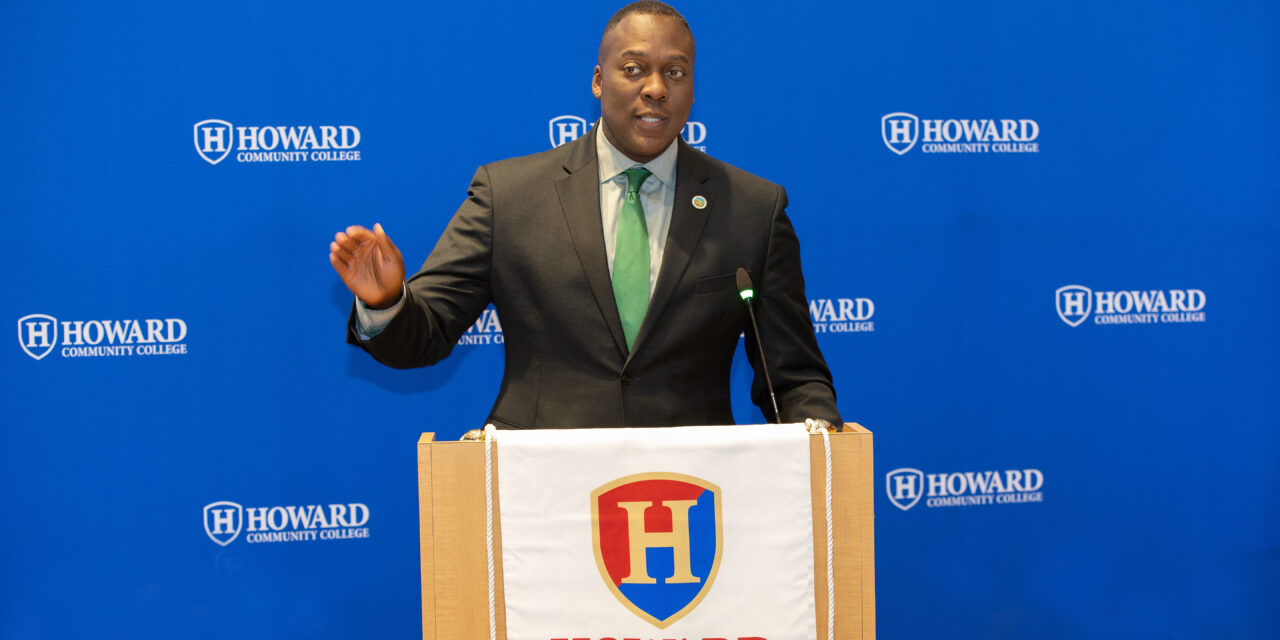During tough economic times, our community colleges have become a vital gateway to opportunity and prosperity. These community institutions are the backbone of our workforce – offering people the opportunity to upskill and obtain new certificates, providing parents an affordable higher education option for their children, and preparing our students, of all ages, to build better futures.
To ensure Maryland is competitive and thriving, we must consistently invest in our 16 community colleges across the state. This includes the full restoration of Cade funding.
In 1996, the Senator John A. Cade Funding Formula was enacted and served as Maryland’s formal commitment to our community colleges. This formula would guarantee fair and proportional funding to ensure affordable tuition and ongoing operational support for institutions.
However, over the years, funding for community colleges has faced significant challenges as the state prioritized and balanced competing budgetary needs. Last year, the state budget proposed a five percent reduction, amounting to nearly $23 million. While $10 million was ultimately restored, community colleges continue to face challenges in providing critical services with fewer resources. With a looming $2.7 billion structural deficit, there are concerns about further cuts to our community colleges.
As a result of the funding gap, our students have incurred tuition increases, and local governments have been asked to re-evaluate and reallocate funding from other priorities. College and career readiness is a core pillar of the Blueprint for Maryland’s Future, and we should avoid balancing budgets at the expense of our community colleges students, and frankly our future.
We must work collaboratively to address these funding gaps to empower the best teaching and learning environments for our students and educators at every level, including our community colleges.
In Howard County, we achieved this by providing record funding for Howard Community College (HCC). In FY25, we invested $44.5 million, a $2.1 million increase over the prior years’ operating budget. During the last six years, we have increased local funding to HCC by more than 25%, reflecting our commitment to support the more than 23,000 credit and noncredit students who enrolled in classes last year. These increases are the largest six year increases in the history of Howard County.
We have also partnered with HCC President Dr. Daria Willis to meet the needs of a changing economy and evolving workforce demands. At a time when enrollment is declining at many four-year institutions, more young people are seeking careers in skilled trades and vocational fields. A recent survey by DEWALT showed that two-thirds of students enrolled in skilled trades programs are committed to the field, but 52% are waitlisted for technical or vocational programs. Unfortunately, training programs cannot keep up with the generational demand.
This leaves it up to our community colleges to help meet this moment for our future workforce. Working with our County Council, as County Executive, I committed $11 million to the construction of a new Workforce Development and Trades Center at HCC. This will be a significant driver of economic opportunity and will connect students with the educational resources and skills they are seeking. Not only will HCC help provide a needed service in building our workforce, but it will also do so in a cost-effective manner for our students.
Recognizing the pressures on higher education and students during the pandemic, we also invested $3.5 million in federal American Rescue Plan funds to create a scholarship for students striving to complete their degrees and workforce training at HCC. To date, more than 500 students have received scholarships, and more than 200 students have participated in our targeted workforce development programs.
Our community colleges and, honestly, all our higher education institutions ensure that more of our young people and working adults are equipped for a changing workforce and a dynamic economy. Whether students are going directly into the workforce or advancing their academic endeavors, our community colleges help meet our students where they dream.
The 2025 legislative agenda for the upcoming Maryland General Assembly Session from the Maryland Association of Community Colleges (MACC) calls for reinstating the 29% Cade formula, an increase from the 27.2% that was established last year. By 2029, educational leaders are calling for that funding to be restored to its intended formula, and I am hopeful that state and local governments can work together to ensure this prioritization.
Across Maryland, more than 100,000 students are served by community colleges each year and they will be even better prepared to transfer into our universities or lead in the careers of tomorrow. Our community colleges are so much more than institutions of higher education; they are a place of equity, social mobility, lifelong learning and skills development.
The success of our state is fundamentally linked to the success of our community colleges. This moment calls for renewed commitment and investment in educational foundations and our future – and together, we can meet this moment now.







Recent Comments